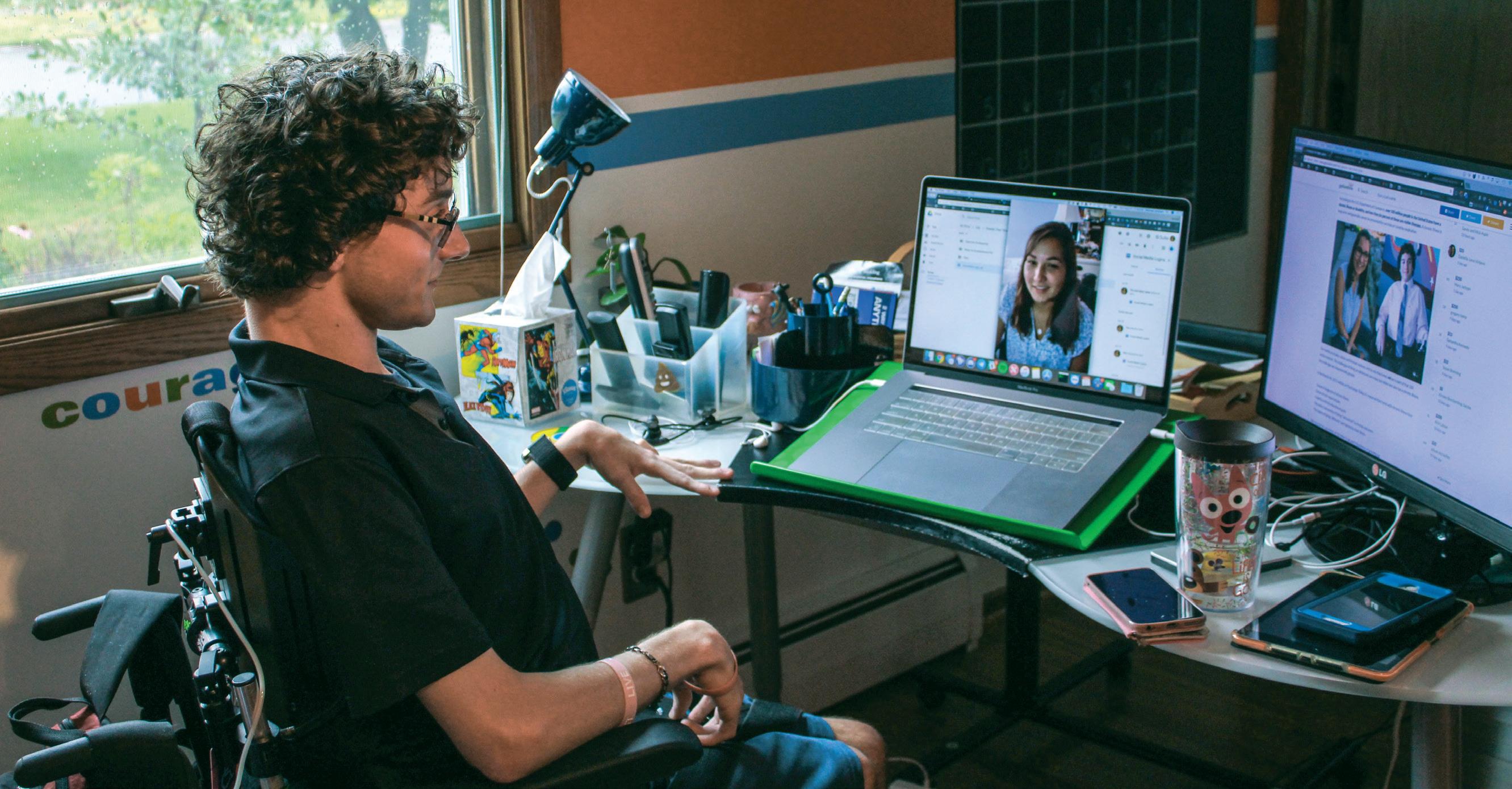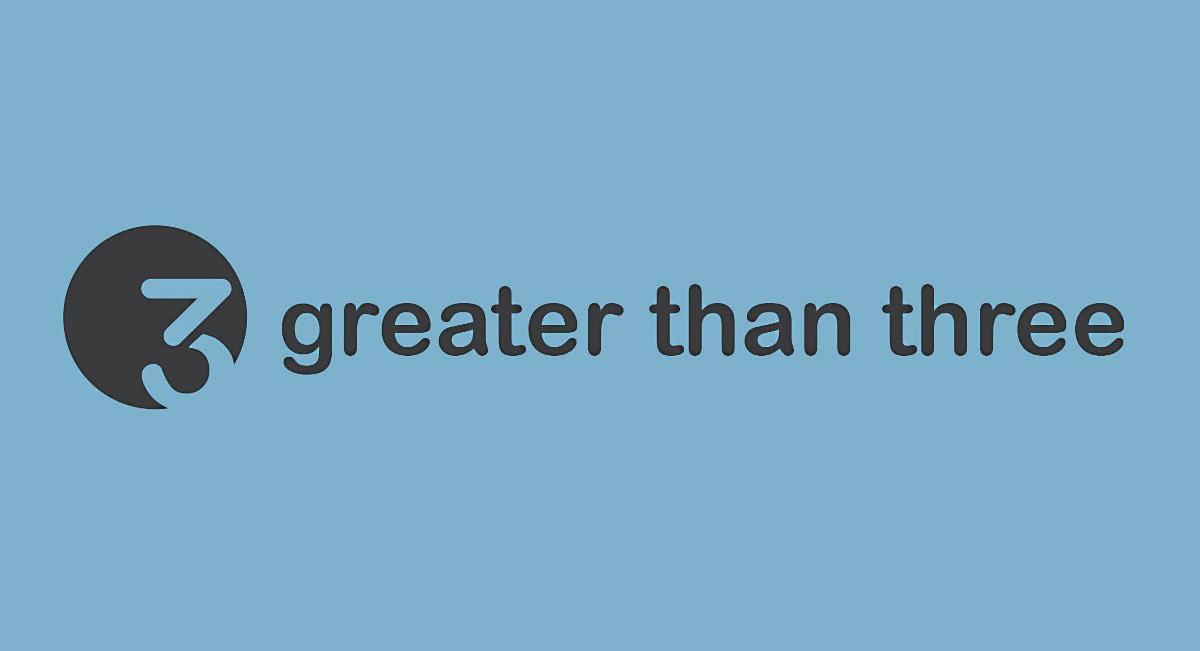
3 minute read
Raising Children Better TOGETHER Social network connects chronically ill adolescents
BY ABIGAIL BLONIGEN
While young people are often criticized for their reliance on the internet, many fail to acknowledge that for many kids — particularly those with chronic illnesses — the internet is a vital means of social interaction.
Having experienced their fair share of flare-ups, stints in the hospital, and time off from school, Michael Jackson and Haley Labian know the importance of an online community. This is what prompted the two chronically ill college graduates to create “Greater Than Three,” a moderated online social network aimed at connecting chronically ill teens and young adults.
Raised in Duluth, Jackson graduated from the College of St. Scholastica in 2016 with bachelor’s degrees in computer information systems and psychology. He then went on to receive a certificate in cyber security from Lake Superior College and still lives in town.
True to their mission, Jackson and Labian have been communicating remotely, as Labian lives in Kalamazoo, Mich. She graduated from Loyola University in Chicago in May of 2018 having studied digital media and graphic design. She is now working full time at an architecture firm.
“The power of the internet is that it connect anyone at any time … I think the fact that Haley and I are in different areas is so cool because we understand the importance of communication online, and that’s what Greater Than Three is going to be,” Jackson said.
The duo, who have yet to meet in person, came up with the idea of Greater Than Three in 2015, a couple years after they were connected online through the chronic illness community. Through chatting, they came to the realization that there was a need for sick kids who miss out on many social experiences to connect with others who are going through the same thing.
“The reality is when you have a chronic illness or a disability, you are already perceived as different, whether that’s by yourself or by others,” Labian said. “We know what’s like to be sick. We know what it’s like to spend weeks in the hospital, to miss events because of this or that doctor appointment.”
Labian was diagnosed with postural orthostatic tachycardia syndrome, or POTS, when she was a junior in high school. She described her illness as having a decreased amount of blood in her body, forcing her heart to work harder to circulate it. This causes her to feel nauseous, ill, or sometimes even faint. Because her disability is not immediately apparent, POTS is classified as an “invisible disability.”
Jackson, on the other hand, has both visible and invisible disabilities, as he was born with spastic quadriplegic cerebral palsy. This type of disability is “visible” because it is more apparent, affecting his speech and his limbs and causing him to use a wheelchair. His invisible disability is short bowel syndrome, which he was diagnosed with in 2013.

According to the United States Department of Commerce and the Greater Than Three website, over 100 million people in the U.S. have a chronic illness or disability, and less than six percent of those are visible illnesses. And while popular social media platforms such as Facebook, Twitter and Instagram do provide opportunities for the disabled and chronically ill to connect, there is currently no platform specifically catered to the population.
“With Facebook or Twitter it’s kind of a free-for-all, but the thing that’s different about Greater Than Three is we will have a vetting system for our members, and we will have staff to make sure that it’s a safe online community for our members,” Jackson said.
Greater Than Three is slowly working to make this dream a reality, and is fundraising to obtain its 501(c)(3) nonprofit status. From there, they aim to have a “fully functional, responsive, mobile ready website with the traditional features of a social network,” said Jackson, with the hopes of developing a mobile application in the future.
The name Greater Than Three came about because of a mishap, ironically reflecting the unpredictability of life with a chronic illness or disability. Knowing there was going to be a fair amount of “text speak” on their platform, Jackson and Labian decided to use the heart emoticon (<3) for their name.

After bouncing the idea off of some friends, they realized to their dismay that the heart emoji is actually “less than three.” Since the duo was already attached to the name, they took the mistake in stride and gave it a new meaning.
“We realized as we talked about it more that someone who is chronically ill has three groups of people in their corner. It’s you, your family, and your medical team. It’s kind of the holy trinity of being a sick kid,” Jackson said. “We realized with this community, we’re adding more to that. We’re adding another group of people who can relate with you.”
Labian used her marketing and graphic design skills to create the logo, and they have been sharing their goal and message via their existing connections and social media.


The friends and co-founders are currently about halfway to their personal fundraising goal of $5,000 to help with the legal fees of becoming a registered nonprofit. To support their cause, visit greaterthanthree.org. Information on their progress can be found on their Facebook page (Greater Than Three) and their Twitter, Instagram and Snapchat accounts (GT3_FDN).
“Together, we are greater than three,” Labian said. — MDT











